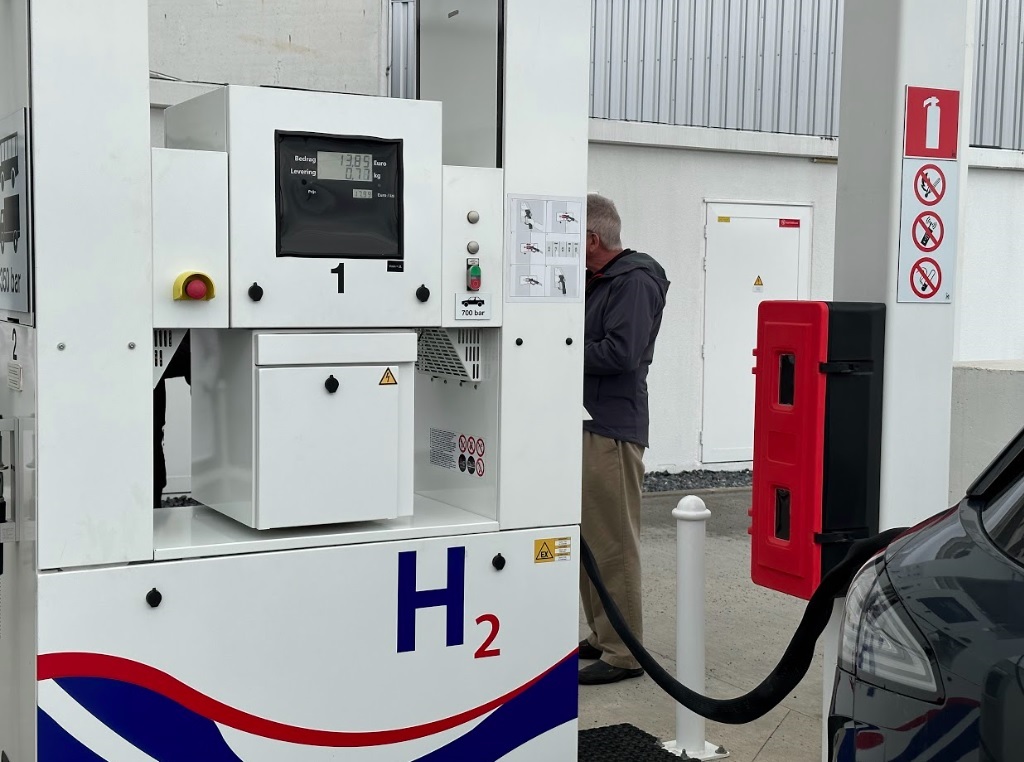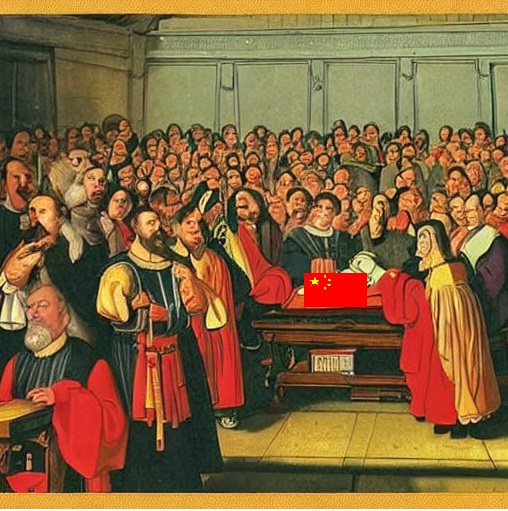Usually after returning from an overseas trip, as we just did from Europe, we would be all about what we saw and learned. And indeed you will see some of that below from our meetings in Brussels, Antwerp and Rotterdam. But while we traveled, something occurred that confirmed for us that we are probably at the turn of a new epoch, and this event hovered over our thoughts throughout the trip. ChatGPT-4 was released. Only a few months after ChatGPT-3. The remarkable progress of large language model (LLM) AI we believe changes everything. The short-sighted will continue to take potshots at the flaws in ChatGPT-4 and point out its limitations. They will assert it is merely “predicting the next word in a sequence” and this is not real intelligence. And yet look at ChatGPT-4’s answer to Alex Tabarrok’s question asking “how Fred Flintstone is like Hamlet:”
Fred Flintstone and Hamlet are two vastly different characters from different time periods, cultures, and mediums of storytelling. It is difficult to draw direct comparisons between the two.
However, one possible point of similarity is that both characters face existential dilemmas and struggles with their sense of purpose and identity. Hamlet is plagued by doubts about his ability to avenge his father’s murder, and his own worthiness as a human being. Similarly, Fred Flintstone often grapples with his place in society and his ability to provide for his family and live up to his own expectations.
Could you have answered the question so intelligently? And note that these LLM’s are now programming software on their own. What will they create? How will this allow non-programmers to change our world? Or see how many people are using it as an effective tool already? Watch it write a brand new language.
It’s possible with Moore’s Law diminishing, and perhaps soon flailing like a Trump lawyer in one of his multitude of court cases, that we have reached the peak of AI and LLMs are no big deal. We will be wrong about this technology just as we were in predicting the imminent arrival of autonomous vehicles. But more likely ChatGPT-4 is just the beginning. We had a fun, edifying and interesting time in Europe. It is also likely our last international trip of the old era. In this new age, as we ask our computer to compare for us Lady Macbeth and Betty Rubble, we inform about Europe’s hydrogen efforts, wonder why people hate ports so much and ponder the European reformation on China. It’s this week’s International Need to Know, tentatively welcoming our international data and information overlords.
Without further ado, here’s what you need to know.
Hydrogen Reconsidered
Years ago in Japan we were told hydrogen was the future of clean energy, including hydrogen-powered cars. In recent years, as electric vehicles drove the market, we mostly forgot about hydrogen, except for seeing occasional tweets and blog posts by people we follow who were dubious of the element’s potential to be a major factor in the clean energy transformation. But in Belgium and the Netherlands, where we were last week, hydrogen is a major priority. A company we met with in Belgium is developing vehicles, both for land and water, that have dual diesel/hydrogen engines. The engine starts up through diesel then operates on hydrogen until it runs out and then seamlessly changes back to using diesel. These vehicles are not zero carbon but moving towards it. These engines don’t use fuel cells which the company does not believe are ready for prime time. Instead they use tanks of hydrogen. Another company we met with just signed a deal to produce two ships that will run fully on hydrogen fuel cells (see below for where they will be manufactured which is a story in itself). Its ships will be ready in two years, in 2025. There are a number of efforts at the Port of Rotterdam to build hydrogen producing facilities that could eventually heat homes in the city. Perhaps it is time to start paying attention to hydrogen again.
We Hate What We Need
While in Europe we met with two ports and a variety of port organizations. A common denominator in these meetings is the locals aren’t fond of their ports. This seemed to be especially true of the Port of Rotterdam. Part of the concern is environmental—folks don’t like the port being a hub for fossil fuels. Fair enough and it appears to be one impetus for the Port to aim to become more clean. See the above hydrogen story. But it also appears to be more than that. People love the modern life style—getting their bicycles, furniture and food, but they don’t want to know how these products got to their garages, houses and tables. Global supply chains have helped make the modern world. And global supply chains are not possible without ports. We are told many people don’t like the look of ports, feel that the cranes and ships mar the view. Perhaps we are odd but we would love to have an abode with such a view. Sure ports aren’t cool but we have noticed anything that is useful and helpful is not considered cool: fanny packs, cell phone holders and container ships all meet disdain from the tragically hip. Ports make your life better and are far more important than condos, restaurants and boardwalks. Start supporting them not harming them.
Proving how uncool ports are we somehow didn’t take a photo of one during our trip. So instead we post this cat in Amsterdam eying us coolly
China Corner: The European Reformation
Anything large has a tendency to be overbearing. China loomed over many of our talks and meetings in Northern Europe. We were surprised how concerned Europe is by China and how active it is to reduce dependence on China. We were surprised to hear staff working for industries reliant on China to be so openly critical of where their bread is buttered. Signs of decoupling abounded. Where once manufacturing drew to China like an addict to fentanyl, today the first instinct of a European company is to manufacture outside of China. One company we met with chose India to manufacture their product. Unprompted they told us they would have chosen China but that had become untenable. It’s one thing that America is actively choosing to separate from China but Europe, which usually is more pragmatic about such things, also joining in is a bit of a bracer about where the world is headed. Russia’s invasion of Ukraine has profoundly changed the mindset of Europe and China’s continued embrace of Russia will harm its European efforts more than it realizes.




